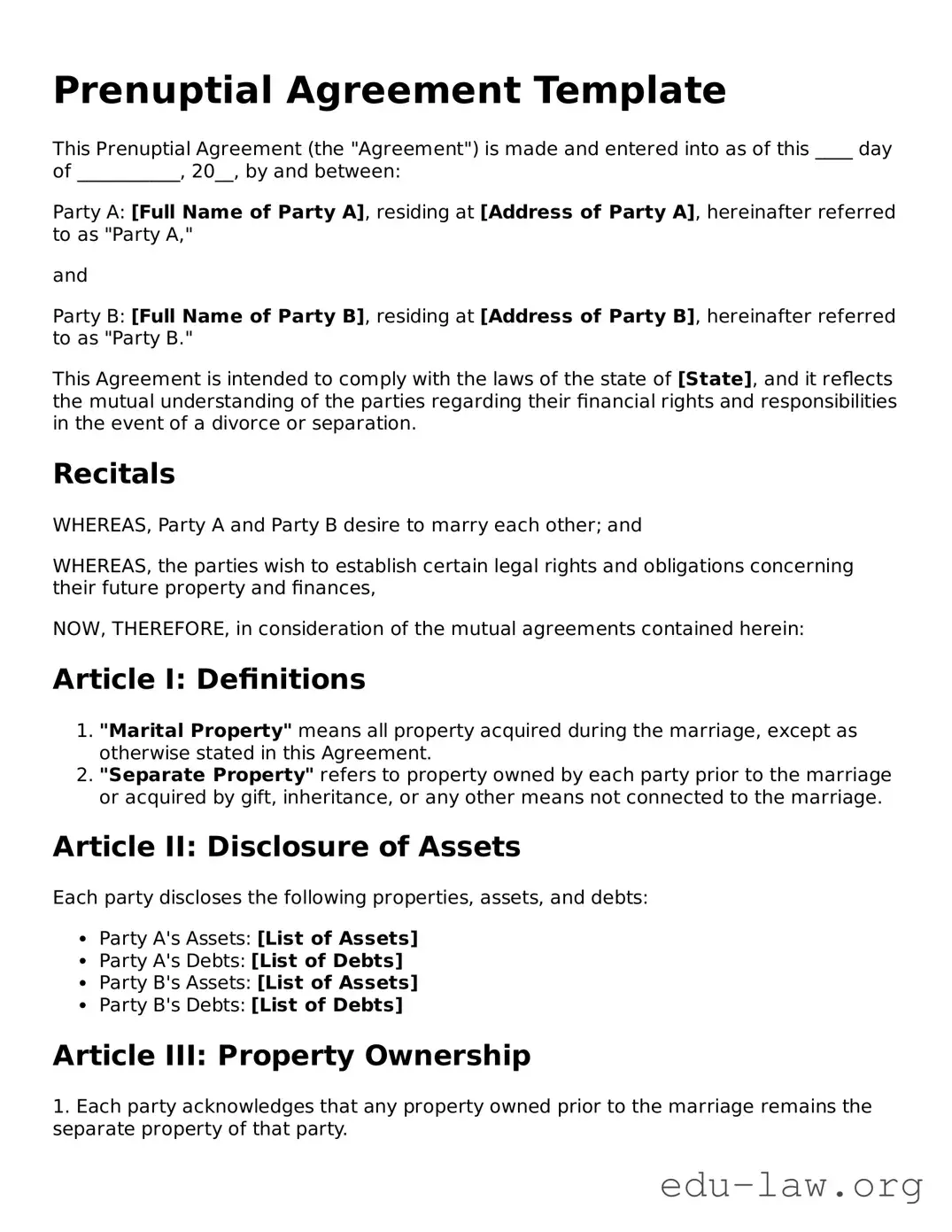Prenuptial Agreement Template
This Prenuptial Agreement (the "Agreement") is made and entered into as of this ____ day of ___________, 20__, by and between:
Party A: [Full Name of Party A], residing at [Address of Party A], hereinafter referred to as "Party A,"
and
Party B: [Full Name of Party B], residing at [Address of Party B], hereinafter referred to as "Party B."
This Agreement is intended to comply with the laws of the state of [State], and it reflects the mutual understanding of the parties regarding their financial rights and responsibilities in the event of a divorce or separation.
Recitals
WHEREAS, Party A and Party B desire to marry each other; and
WHEREAS, the parties wish to establish certain legal rights and obligations concerning their future property and finances,
NOW, THEREFORE, in consideration of the mutual agreements contained herein:
Article I: Definitions
- "Marital Property" means all property acquired during the marriage, except as otherwise stated in this Agreement.
- "Separate Property" refers to property owned by each party prior to the marriage or acquired by gift, inheritance, or any other means not connected to the marriage.
Article II: Disclosure of Assets
Each party discloses the following properties, assets, and debts:
- Party A's Assets: [List of Assets]
- Party A's Debts: [List of Debts]
- Party B's Assets: [List of Assets]
- Party B's Debts: [List of Debts]
Article III: Property Ownership
1. Each party acknowledges that any property owned prior to the marriage remains the separate property of that party.
2. Any property acquired during the marriage, unless otherwise specified, will be considered marital property.
Article IV: Spousal Support
If the marriage ends, both parties agree that:
- Neither party will seek spousal support from the other.
- In the event that spousal support is sought, it will be determined based on circumstances existing at the time.
Article V: Waiver of Rights
The parties waive any rights to each other’s separate property as defined in this Agreement.
Article VI: Governing Law
This Agreement will be governed by and construed in accordance with the laws of the state of [State].
Signatures
IN WITNESS WHEREOF, the parties hereto have executed this Prenuptial Agreement as of the date first above written.
______________________________
Signature of Party A
______________________________
Signature of Party B
______________________________
Date
______________________________
Witness
______________________________
Date
This template should provide a foundation for outlining the essential elements of a prenuptial agreement between two parties, ensuring clarity and mutual understanding.
